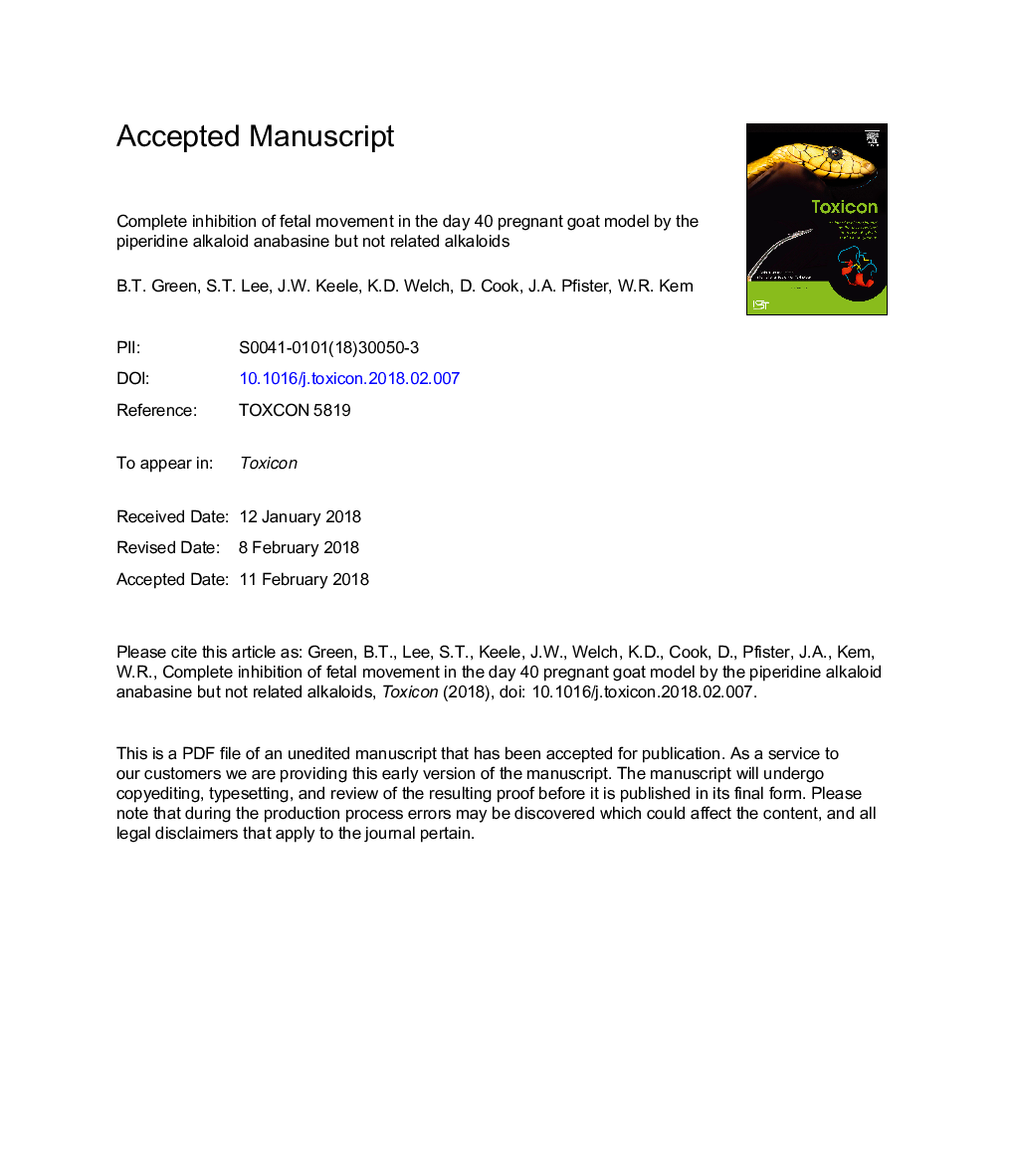| Article ID | Journal | Published Year | Pages | File Type |
|---|---|---|---|---|
| 8394679 | Toxicon | 2018 | 27 Pages |
Abstract
Four chemically similar alkaloids, anabasine, anabaseine, epibatidine and dimethylphenylpiperazinium (DMPP), are potent nicotinic acetylcholine receptor agonists of fetal muscle nicotinic acetylcholine receptors in human TE-671â¯cells. Based on results with these cells, we hypothesized that the alkaloids would completely inhibit ultrasound-monitored fetal movement in a goat model. Different, single doses of anabasine, anabaseine, epibatidine, DMPP, or saline control were administered I.V. to pregnant goats on day 40 of gestation and the number of fetal movements per 5â¯min sample was measured by ultrasound at times 0, 0.5, 1, 2, 4 and 8â¯h. The differences among does in fetal movements were more consistent at dosing and following recovery for doses of anabasine above 0.125â¯mg/kg compared to the other compounds and dosages. Anabasine actions were dose-dependent with an IC50 value of â¼0.1â¯mg/kg, and, at a dose of 0.8â¯mg/kg, completely inhibited fetal movement for 1.5â¯h after dosing. Anabaseine, epibatidine, and DMPP failed to completely inhibit fetal movement in day 40 pregnant goats at doses predicted to be effective. These results suggest that while experiments with TE-671â¯cells provide valuable information and predictions of the actions of plant alkaloids on fetal movement, in vivo experiments are still required in order to determine the ability of an alkaloid to inhibit fetal movement in livestock species. Moreover, other pharmacological properties such as receptor differences between mammalian species and differences in the pharmacokinetic properties of the alkaloids also are likely to weaken teratologic predictions based solely on the in vitro data.
Keywords
Related Topics
Life Sciences
Biochemistry, Genetics and Molecular Biology
Biochemistry, Genetics and Molecular Biology (General)
Authors
B.T. Green, S.T. Lee, J.W. Keele, K.D. Welch, D. Cook, J.A. Pfister, W.R. Kem,
